April 8 stands as one of history’s most eventful days, witnessing the rise and fall of empires, groundbreaking discoveries, and moments that shaped our modern world across centuries of human achievement.

Politics and Government Events on April 8
1904 – Entente Cordiale Signed Between France and Britain
The French Third Republic and the United Kingdom of Great Britain and Ireland signed the historic Entente Cordiale on this momentous day. This diplomatic agreement resolved centuries of colonial disputes and established the foundation for future cooperation.
The accord transformed European power dynamics by creating a crucial alliance against German expansion. This diplomatic breakthrough would prove instrumental in shaping the alliances that defined the Great War.
1940 – Yumjaagiin Tsedenbal Rises to Power in Mongolia
The Central Committee of the Mongolian People’s Revolutionary Party elected Yumjaagiin Tsedenbal as General Secretary, launching an unprecedented political career. His appointment marked the beginning of what would become one of the longest tenures in modern political history.
Tsedenbal’s 44-year leadership would fundamentally reshape Mongolia’s political landscape and international relations. His influence extended far beyond national borders, affecting Soviet-Chinese dynamics in Central Asia.
1990 – Conservative Victory in Greek Elections
The conservative New Democracy party of Constantine Mitsotakis achieved a decisive victory in the Greek parliamentary election. This electoral triumph marked a significant shift in Greek politics toward market-oriented reforms.
The victory ended years of socialist governance and introduced new economic policies that would transform Greece’s relationship with European institutions. Mitsotakis’s leadership ushered in an era of political and economic modernization.
2010 – Obama and Medvedev Sign New START Treaty
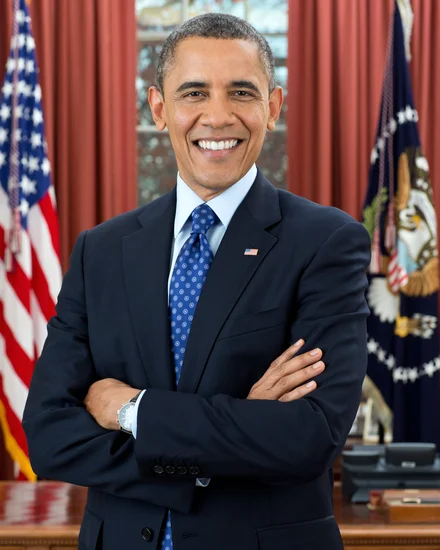
U.S. President Barack Obama and Russian President Dmitry Medvedev signed the New START Treaty, marking a historic moment in nuclear disarmament. This agreement represented the most significant arms control achievement in decades.
The treaty committed both superpowers to substantial reductions in their nuclear arsenals. This diplomatic breakthrough demonstrated that Cold War adversaries could collaborate on humanity’s most pressing security challenges.
2016 – Bernie Sanders Ends Presidential Campaign

Bernie Sanders ended his presidential campaign, leaving Joe Biden as the Democratic Party’s presumptive nominee for the 2020 election. This decision marked the conclusion of one of the most influential progressive campaigns in American political history.
Sanders’s withdrawal unified the Democratic Party behind Biden’s candidacy against incumbent President Donald Trump. The Vermont senator’s policy proposals had fundamentally shifted the party’s platform toward more progressive positions.
Military and Naval History on April 8
1968 – Tragic End of BOAC Flight 712

BOAC Flight 712 caught fire shortly after takeoff, creating a life-threatening emergency for all passengers and crew aboard. Flight attendant Barbara Jane Harrison demonstrated extraordinary courage in her rescue efforts during the crisis.
Harrison’s heroic actions saved numerous lives but cost her own in the process. Her posthumous George Cross award made her the only woman to receive this honor during peacetime.
1970 – Bahr El-Baqar School Bombing

Israeli bombers struck the Bahr El-Baqar primary school in Egypt, resulting in the tragic death of forty-six children. This devastating attack shocked the international community and escalated tensions in the Middle East.
The bombing occurred during the War of Attrition between Israel and Egypt. The civilian casualties intensified diplomatic efforts to resolve the ongoing conflict between the two nations.
1959 – Netherlands and West Germany Reach Agreement
The Netherlands and West Germany signed a crucial agreement to negotiate the return of German territories annexed by the Dutch after World War II. The arrangement included substantial financial compensation of 280 million German marks as Wiedergutmachung.
This diplomatic breakthrough helped heal wartime wounds and strengthened European cooperation. The agreement demonstrated how former enemies could resolve territorial disputes through peaceful negotiation and mutual compensation.
Science and Discovery Milestones on April 8
1959 – COBOL Programming Language Meeting
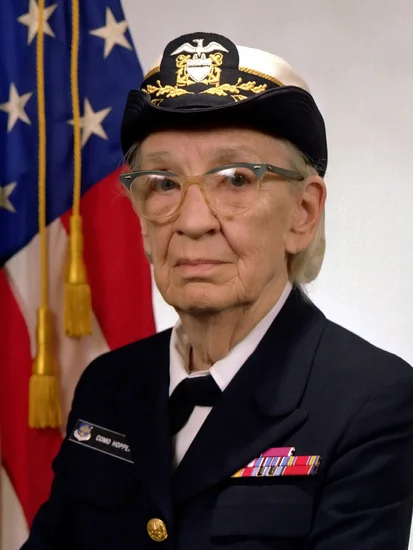
Grace Hopper led a groundbreaking team of computer manufacturers, users, and university representatives to discuss creating a revolutionary new programming language. This historic meeting would result in the development of COBOL, transforming business computing forever.
The collaborative effort brought together diverse expertise to address the growing need for standardized programming languages. COBOL would become one of the most widely used programming languages in business and government applications.
1993 – Space Shuttle Discovery Launches
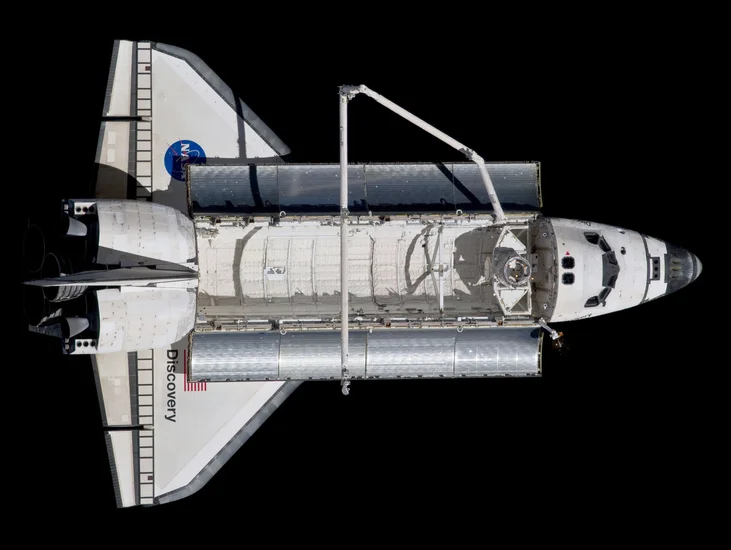
The Space Shuttle Discovery launched on mission STS-56, marking another milestone in America’s space exploration program. This mission carried important scientific experiments and equipment to advance our understanding of space.
The successful launch demonstrated NASA’s continued commitment to space research and international collaboration. Discovery’s mission contributed valuable data for future space exploration and scientific research.
2002 – Atlantis Delivers S0 Truss to Space Station

The Space Shuttle Atlantis launched on mission STS-110, carrying the crucial S0 truss component to the International Space Station. Astronaut Jerry L. Ross achieved a historic milestone by becoming the first person to complete seven spaceflights.
This mission marked a critical step in the Space Station’s construction and expansion. Ross’s unprecedented seven flights demonstrated the increasing importance of experienced astronauts in complex space operations.
2005 – Solar Eclipse Visible Across Pacific

A spectacular solar eclipse occurred, visible across vast areas of the Pacific Ocean and several Latin American countries including Costa Rica, Panama, Colombia, and Venezuela. This celestial event provided scientists with valuable opportunities to study the sun’s corona and atmospheric effects.
The eclipse drew thousands of observers and researchers to the path of totality. These natural phenomena continue to advance our understanding of solar physics and atmospheric science.
Cultural and Arts Events on April 8
2024 – Total Solar Eclipse Captivates North America

The solar eclipse of April 8, 2024, created a breathtaking spectacle as it crossed North America, drawing millions of observers to witness totality. This celestial event marked one of the most widely observed eclipses in modern history.
The eclipse’s path stretched across multiple states and provinces, creating a shared cultural experience for diverse communities. Social media platforms exploded with photographs and videos capturing this rare astronomical phenomenon.
2010 – Technology Milestone as Windows XP Ends
Windows XP reached its standard End of Life, officially ending Microsoft’s support for one of the most beloved operating systems in computing history. This transition marked the end of an era for millions of computer users worldwide.
The operating system’s retirement forced businesses and individuals to upgrade to newer platforms. XP’s legacy continues to influence modern computing design and user interface development.
2014 – Cultural Impact of Technology Transition
The end of Windows XP support created a cultural moment as users worldwide said goodbye to a familiar digital companion. This technological transition affected everyone from casual users to major corporations.
The operating system had become deeply embedded in daily life across the globe. Its retirement symbolized the rapid pace of technological change in the digital age.
Religious and Social Events on April 8
1960 – Inter-American Development Bank Created
The Organization of American States drafted a comprehensive agreement to establish the Inter-American Development Bank, creating a new institution for regional economic cooperation. This initiative demonstrated growing solidarity among Western Hemisphere nations.
The bank’s formation marked a significant step toward economic integration and development assistance across the Americas. This institution would provide crucial funding for infrastructure and social development projects throughout Latin America.
1954 – Aviation Safety Concerns Emerge
A Royal Canadian Air Force Canadair Harvard collided with a Trans-Canada Airlines Canadair North Star over Moose Jaw, Saskatchewan, resulting in thirty-seven fatalities. This tragic accident highlighted the urgent need for improved aviation safety protocols.
The collision prompted comprehensive reviews of air traffic control procedures and pilot training standards. These safety improvements would save countless lives in future aviation operations.
1954 – South African Airways Tragedy
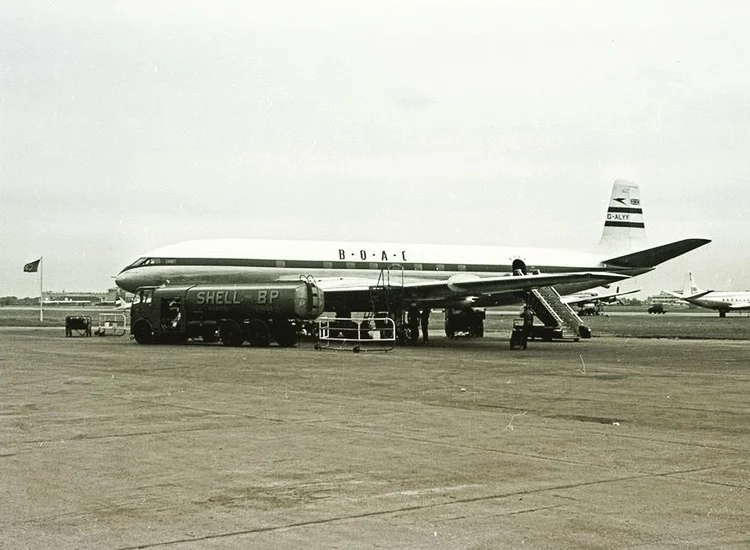
South African Airways Flight 201, operating a de Havilland DH.106 Comet 1, crashed into the sea during nighttime operations, killing twenty-one people. This disaster contributed to growing concerns about the safety of early jet aircraft.
The accident prompted extensive investigations into jet aircraft design and operational procedures. These findings led to crucial improvements in aviation safety and aircraft certification standards.
Business and Economic Events on April 8
1959 – Inter-American Development Bank Formation
The Organization of American States completed negotiations to establish the Inter-American Development Bank, creating a powerful new financial institution for regional development. This achievement represented unprecedented cooperation among Western Hemisphere nations.
The bank would provide essential funding for infrastructure projects, social programs, and economic development initiatives across Latin America and the Caribbean. This institution became a cornerstone of hemispheric economic cooperation.
2010 – Microsoft Ends Windows XP Support
Microsoft officially ended support for Windows XP, forcing millions of users and businesses to upgrade their computer systems. This transition created massive economic opportunities for software companies and hardware manufacturers.
The end of XP support generated billions in revenue for the technology industry. This planned obsolescence model became a standard practice in the software industry.
2014 – Technology Industry Transformation
The conclusion of Windows XP support marked a significant economic milestone in the technology sector. Companies worldwide invested heavily in system upgrades and new software licenses.
This transition demonstrated the economic power of planned obsolescence in the technology industry. The upgrade cycle generated substantial revenue for Microsoft and its partners.
Transportation and Infrastructure on April 8
1954 – Canadian Aviation Disaster
A Royal Canadian Air Force Canadair Harvard collided with a Trans-Canada Airlines Canadair North Star over Moose Jaw, Saskatchewan, claiming thirty-seven lives. This devastating accident exposed critical weaknesses in Canadian aviation safety systems.
The collision prompted immediate changes to air traffic control procedures and pilot training programs. These improvements established Canada as a leader in aviation safety innovation.
1954 – Comet Aircraft Safety Crisis
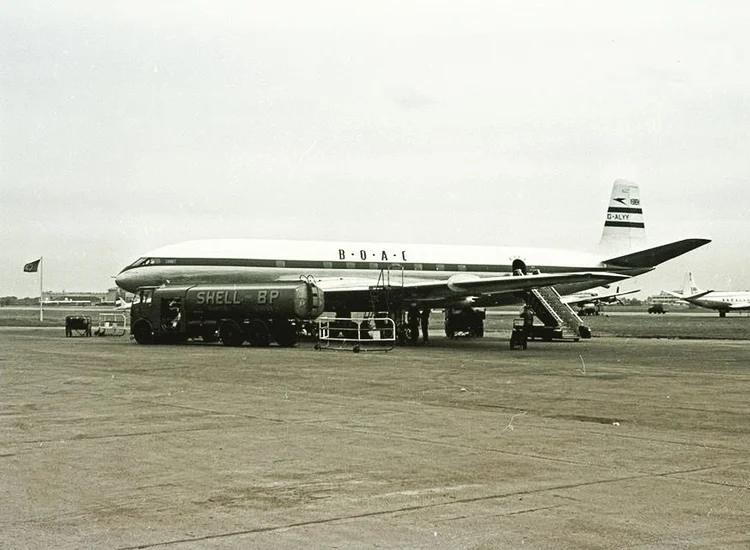
South African Airways Flight 201 crashed into the sea during night operations, killing twenty-one passengers and crew aboard the de Havilland DH.106 Comet 1. This tragedy contributed to a growing crisis of confidence in early jet aircraft.
The accident led to comprehensive investigations that revealed critical design flaws in the Comet aircraft. These findings revolutionized aircraft certification processes and safety standards worldwide.
1968 – Aviation Safety Heroism

BOAC Flight 712 caught fire shortly after takeoff, creating a life-threatening emergency that tested crew training and safety procedures. Flight attendant Barbara Jane Harrison’s heroic actions saved numerous lives during the crisis.
Harrison’s sacrifice led to improved emergency evacuation procedures and crew training standards. Her posthumous George Cross award honored the critical role of flight attendants in aviation safety.
Sports and Recreation on April 8
1974 – Hank Aaron Breaks Babe Ruth’s Home Run Record

Hank Aaron made baseball history by hitting his 715th home run off pitcher Al Downing at Atlanta-Fulton County Stadium, surpassing Babe Ruth’s legendary record. This momentous achievement broke one of sports’ most sacred records.
Aaron’s historic home run occurred before a capacity crowd and national television audience. The achievement represented not only athletic excellence but also significant progress in breaking down racial barriers in professional sports.
1974 – Baseball’s Greatest Moment

The crowd at Atlanta-Fulton County Stadium erupted as Hank Aaron’s 715th home run sailed over the fence, officially breaking Babe Ruth’s all-time record. This achievement marked one of the most significant moments in American sports history.
Aaron’s record-breaking performance demonstrated perseverance in the face of enormous pressure and racial hostility. His achievement inspired generations of athletes and fans across all racial and ethnic backgrounds.
1974 – Sports History Made in Atlanta

Television cameras captured the historic moment as Hank Aaron rounded the bases after hitting his record-breaking 715th home run. This achievement transformed Aaron from a great player into a sports legend.
The home run’s impact extended far beyond baseball, symbolizing progress in American civil rights. Aaron’s dignity and excellence helped change perceptions about race in professional sports.
Notable Births on April 8
1918 – Betty Ford Born

Betty Ford entered the world in Illinois, beginning a life that would profoundly impact American politics and social causes. Her early experiences shaped her commitment to honesty and public service.
Ford would become one of America’s most influential First Ladies, known for her candor about personal struggles and advocacy for women’s rights. Her openness about addiction and health issues revolutionized public discourse on these topics.
1929 – Jacques Brel Born

Belgian singer-songwriter Jacques Brel was born, destined to become one of the most influential chanson artists of the 20th century. His powerful voice and poetic lyrics would captivate audiences across Europe and beyond.
Brel’s artistic vision transcended national boundaries, influencing countless musicians and performers. His passionate performances and deeply emotional songs established him as a master of the chanson tradition.
1938 – Kofi Annan Born
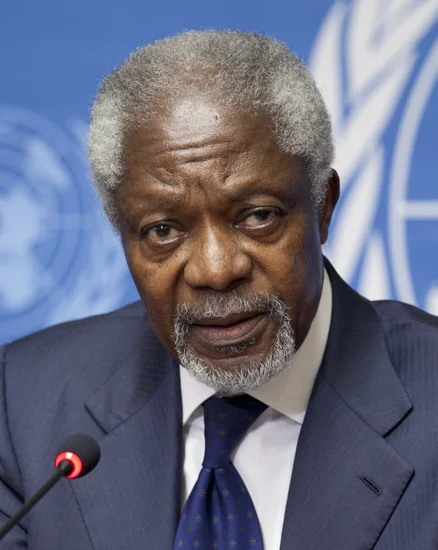
Ghanaian economist and diplomat Kofi Annan was born, beginning a journey that would lead him to become the 7th Secretary-General of the United Nations. His diplomatic skills and commitment to peace would define his remarkable career.
Annan’s leadership of the UN earned him the Nobel Peace Prize and international recognition. His efforts to strengthen international cooperation and human rights left a lasting impact on global governance.
1940 – John Havlicek Born

American basketball player John Havlicek was born, destined to become one of the NBA’s greatest players. His exceptional skills and work ethic would make him a cornerstone of the Boston Celtics dynasty.
Havlicek’s “Hondo” nickname reflected his determination and clutch performances in crucial games. His sixteen seasons with the Celtics produced eight NBA championships and a legacy of excellence.
1942 – Vivienne Westwood Born

English fashion designer Vivienne Westwood was born, beginning a career that would revolutionize fashion and punk culture. Her innovative designs and rebellious spirit would challenge conventional fashion norms.
Westwood’s punk aesthetic and political activism influenced generations of designers and artists. Her work bridged high fashion and street culture, creating a unique artistic vision that continues to inspire.
1955 – Barbara Kingsolver Born

American novelist, essayist, and poet Barbara Kingsolver was born, beginning a literary career that would earn critical acclaim and popular success. Her writing would explore themes of social justice and environmental consciousness.
Kingsolver’s novels combine compelling storytelling with important social messages. Her work has inspired readers to consider their relationship with nature and their responsibilities to society.
1966 – Robin Wright Born

American actress, director, and producer Robin Wright was born, beginning a career that would span decades and multiple entertainment mediums. Her versatile performances would earn critical acclaim and industry recognition.
Wright’s transition from actress to director demonstrated her artistic range and commitment to storytelling. Her work both in front of and behind the camera has influenced contemporary film and television.
1968 – Patricia Arquette Born

American actress and director Patricia Arquette was born, beginning a career that would earn her Academy Award recognition and critical acclaim. Her performances would showcase remarkable range and emotional depth.
Arquette’s advocacy for equal pay and women’s rights has complemented her artistic achievements. Her platform as an actress has amplified important social justice causes.
1981 – Taylor Kitsch Born

Canadian actor and model Taylor Kitsch was born, beginning a career that would take him from small-town Canada to Hollywood stardom. His rugged charm and acting ability would earn him diverse roles.
Kitsch’s performances in television and film have demonstrated his versatility as an actor. His work has helped establish him as a prominent figure in contemporary entertainment.
Notable Deaths on April 8
1973 – Pablo Picasso Dies

Spanish painter and sculptor Pablo Picasso died, ending one of the most influential artistic careers in history. His revolutionary approach to art had fundamentally transformed how the world understood visual expression.
Picasso’s innovations in cubism, surrealism, and modern art continue to influence contemporary artists. His prolific output and constant experimentation established him as the definitive modern artist.
1990 – Ryan White Dies

American activist Ryan White died, ending a courageous battle against AIDS that had educated the nation about the disease. His fight against discrimination and ignorance had transformed public understanding of HIV/AIDS.
White’s advocacy inspired the Ryan White Care Act, providing crucial support for AIDS patients. His courage in the face of prejudice and illness made him a symbol of hope and human dignity.
1994 – Marian Anderson Dies

American operatic singer Marian Anderson died, concluding a groundbreaking career that had broken racial barriers in classical music. Her extraordinary voice and dignity had opened doors for generations of artists.
Anderson’s historic performance at the Lincoln Memorial in 1939 became a defining moment in civil rights history. Her artistic excellence and quiet strength challenged racism in American cultural institutions.
2013 – Margaret Thatcher Dies
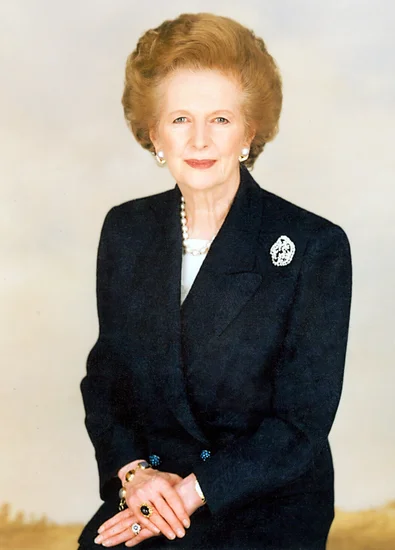
Margaret Thatcher, the first female Prime Minister of the United Kingdom, died, ending a political career that had transformed Britain and international relations. Her conservative policies and strong leadership had earned her the nickname “Iron Lady.”
Thatcher’s economic reforms and foreign policy achievements fundamentally changed Britain’s role in the world. Her partnership with Ronald Reagan helped end the Cold War and reshape global politics.
2024 – Peter Higgs Dies
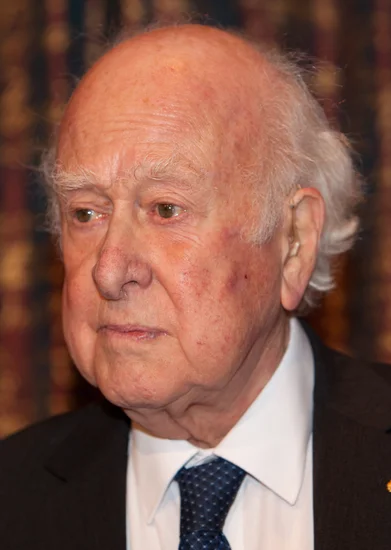
British physicist Peter Higgs died, concluding a scientific career that had revolutionized our understanding of fundamental particles. His theoretical work on the Higgs boson had earned him the Nobel Prize in Physics.
Higgs’s discovery of the mechanism that gives mass to particles represents one of the most important scientific achievements of the modern era. His work has fundamental implications for our understanding of the universe.
Holidays and Observances on April 8
Buddha’s Birthday Celebration in Japan
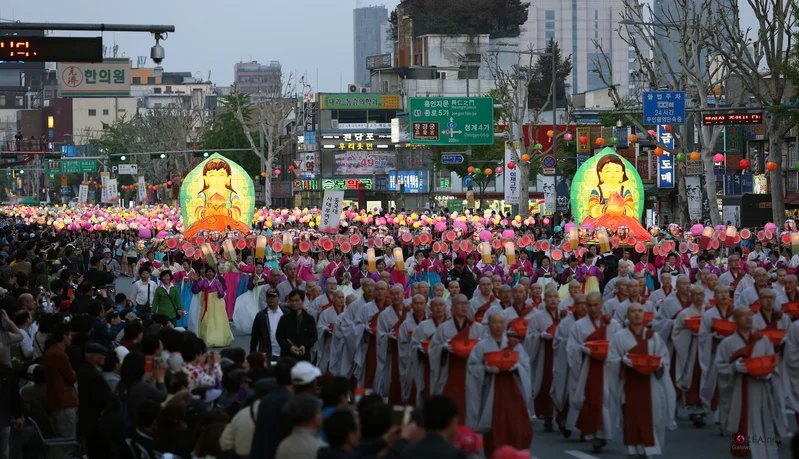
Buddha’s Birthday, known as Hana Matsuri or “Flower Festival,” is celebrated throughout Japan with colorful ceremonies and traditional rituals. This ancient observance honors the birth of Siddhartha Gautama, who became the Buddha.
Japanese temples across the country host special ceremonies featuring flower decorations and sweet tea offerings. The festival combines religious devotion with cultural traditions that have been preserved for centuries.
International Romani Day
International Romani Day is observed worldwide to celebrate Romani culture and raise awareness about the challenges faced by Romani communities. This important observance promotes understanding and appreciation of Romani contributions to global culture.
The day serves as an opportunity to address discrimination and promote human rights for Romani people. Educational events and cultural celebrations help build bridges between Romani and non-Romani communities.
Christian Feast Day Observances
Various Christian denominations observe the feast days of several saints including Julie Billiart of Namur, Walter of Pontoise, and others. These religious observances honor the lives and contributions of important Christian figures.
The feast days provide opportunities for prayer, reflection, and community gathering among Christian believers. These celebrations maintain important religious traditions and strengthen faith communities worldwide.
